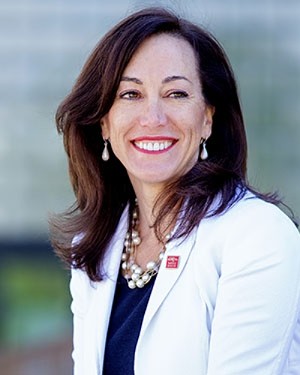A new list focused on the country's best colleges and universities from WalletHub could be bad news for Colorado schools. The site analyzed 913 colleges and universities in the U.S., including eleven in this state. The top Colorado finisher, the University of Denver, placed at number 200 on the roster, and the other ten fell in the lower half, with Metro State University of Denver landing at 911, third from last. (Note that some prominent institutions, such as Colorado College, Colorado School of Mines and Colorado Mesa University, weren't included in the WalletHub study.)
The Colorado rankings:
1. University of Denver: 200WalletHub analyst Jill Gonzalez stresses that the site "stands by the results of the study. To ensure the results have no bias, we used reputable sources such as the National Center for Education Statistics, the Council for Community and Economic Research and the Department of Education. The methodology and metrics were chosen by WalletHub analysts in conjunction with academic experts" — the report cites contributors from the likes of Xavier University; the University of California, Los Angeles (UCLA); the University of Georgia; Arizona State University and more — "based on their relevance, as well as availability of data. They cover everything from student selectivity, cost, financing and faculty resources to campus safety and experience, and education and career outcomes. We believe that all these factors can show the value of the education students can expect to receive."
2. University of Colorado Denver: 504
3. University of Colorado Boulder: 513
4. Colorado State University: 524
5. Regis University: 542
6. University of Northern Colorado: 693
7. Western Colorado University: 800
8. Colorado State University Pueblo: 850
9. Fort Lewis College: 862
10. Adams State University: 893
11. Metro State University of Denver: 911
Gonzalez adds that "the main purpose of the report is to help college-bound seniors choose the best schools within their state. Since WalletHub is a personal finance website, we wanted to determine the top-performing schools at the lowest possible costs to undergraduates."
After seeing the WalletHub list, Westword also reached out to all of the colleges and universities on the list; six responded. The briefest comment came from Victoria O'Malley, assistant vice chancellor for marketing and brand for the University of Colorado Denver, who writes, "Prospective students need to be discerning about what rankings they consider when making decisions about their education. Not all rankings are equal, as methodologies, data sources and criteria all vary."
Also succinct is University of Colorado spokesperson Andrew Sorenson. "A variety of organizations publish rankings annually and their methodology varies," he stated. "They are one of many factors prospective students can consider. We recommend that students look for the best fit to realize their unique potential. Here at CU Boulder, we are focused on improving retention, graduation rates, affordability and excellence in teaching and research every day."
DU representative Jon Stone points out that "because of the different methodology and process used to collect data by every publication, the University of Denver prioritizes and only tracks certain rankings." The ranking page on the university's website is broken down into surveys examining undergraduate programs, graduate programs, services for veterans and members of the military, sustainability, international education and voting engagement, and all of the studies linked beneath them are from venerable sources. Among the agency links provided for undergrad programs are U.S. News & World Report, which judged DU to be the nation's 105th best university, as well as the Wall Street Journal/Times Higher Education, the Princeton Review, Forbes, Kiplinger's Personal Finance and Bloomberg Businessweek.
MSU Denver president Janine Davidson goes into significantly more detail about the WalletHub offering and is critical of studies that lump colleges and universities together in apples-and-oranges fashion. "Most rankings just aren’t using the right data to actually tell the full story around educational experiences and outcomes — especially those with an access mission," she says. "MSU Denver is the only modified, open-access institution in Colorado, required by statute to admit all students at least twenty-years-old with a high school diploma or GED regardless of their academic credentials. We define ourselves by who we include, not who we exclude, and are proud that anyone can receive an outstanding education at MSU Denver at a fraction of the cost of so-called 'elite' universities that appear at the top of most rankings."
In Davidson's view, "Many of these metrics are a proxy for wealth. The largest criteria in the WalletHub rankings is 'student selectivity,' including admission rate and ACT/SAT scores. Social mobility opportunities shouldn’t be based on standardized tests scores, which correlate with family income and parental education and have large gaps based on race and ethnicity. We’re more focused on a student’s long-term potential than one test they took on a Saturday as a seventeen-year-old, and these surveys fail to reflect that mobility. Most rankings also rely on data that excludes transfer students — who make up half of the MSU Denver student population — so these rankings are irrelevant in describing us and other institutions designed to meet students where they are in their academic journeys."
Davidson feels that "students should care about the ROI [return of investment] of going to college, including tuition cost, as well as fit. They should select their higher education home based on the overall student experience — location, accessibility, program offerings, size, cost, campus environment and available support systems."
Cedric Howard, vice president of student affairs and enrollment services at the University of Northern Colorado, puts such studies in a broader context. "There are many indicators of a university’s quality, including but not limited to various ranking factors," he says. "At the University of Northern Colorado, we pay close attention to the overall student experiences with an emphasis on graduation rates, post-graduation placement, student earnings, student-teacher ratios, and preparation to contribute to a global marketplace."

Cedric Howard is the University of Northern Colorado's vice president of student affairs and enrollment services.
At the same time, he suggests, "one of the most significant factors of quality education is to measure the university’s ability to demonstrate its return on investment to a student through the Social Mobility Index. The SMI measures the extent to which a college or university educates more economically challenged students (with family incomes below the national median) at lower tuition and graduates them into good-paying jobs. The SMI rankings for colleges and universities are computed from five variables: published tuition, percent of student body whose family incomes are below $48K (slightly below the U.S. median), graduation rate, median salary approximately five years after graduation, and the size of the school’s endowment."
Howard quotes CollegeNET, an organization that ranks schools using its own SMI: "The greatest returns to self from work, academic or otherwise, come from delivering benefits to the family, nation and our world. Families and students who understand this and want to move up efficiently to a position of social and economic influence in our country will gravitate to high SMI schools" — and UNC finished at number 290 out of more than 1,000 institutions by this measure.
"UNC’s SMI rankings demonstrate its ability to provide access to deserving students from economically depressed backgrounds while graduating them and preparing them for better-paying jobs than previously afforded to their families," he notes.
Greg Harrison, assistant vice president for strategic communications for Colorado State University, acknowledges that CSU "appreciates different rankings. However, people should not place too high of a value on them. Instead, we think students and their families should focus on a campus that fits their needs academically, financially, geographically and culturally."
Harrison emphasizes that ratings organizations differ widely in terms of methodologies and how they're weighted, as evidenced by how much better CSU did in U.S. News & World Report's annual "America's Best Colleges" list — the same one linked by DU. He notes that Colorado State hit number 72 among the best public universities in the country, up from 79 in 2019 — and 1,850 schools nationwide share statistics for the survey, which "weighs factors like graduation rates, retention, student debt and peer review to determine how universities place. It does not consider elements like the overall student experience or athletics."
Just as important, Harrison contends, is that "CSU also offers one of the best economic values in the country. According to U.S. News data, 43 percent of CSU students don’t take on student loan debt and, among those who do, the amount is about $23,000. CSU students graduate with 20 percent less debt than the national average. This places the university among national universities whose students graduate with the lightest debt load." And the university also made the magazine's "list of A-plus schools for students who want to be part of a university with a broad, engaged student body while displaying their individuality and seriousness of purpose," and was rated the 86th best school for veterans.
As for costs, Harrison provides the following chart:
"After adjusting for inflation, CSU tuition has actually decreased since 2017, and has only increased by 4.3 percent since 2014, while cumulative inflation since 2014 is at about 14.5 percent," he explains. "For students whose household income is less than $30,000, the net cost of attendance (what the student actually pays) has decreased by 4 percent since 2014 (inflation adjusted)."
CSU research shows that "students want a practical degree that will get them a job upon graduation," Harrison says, and university figures show that 85 percent secured employment or moved into continuing education within six months of graduation; 81 percent indicated that their future plans were related to their major, and 80 percent completed their degree in four and a half years or less.
These achievements strike Harrison as more meaningful than where CSU landed on WalletHub's latest list.















